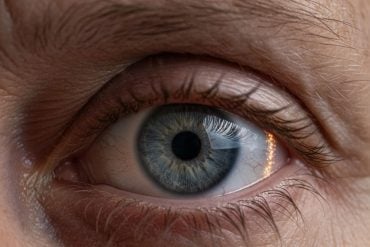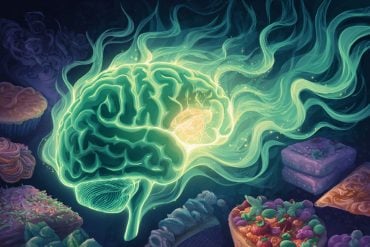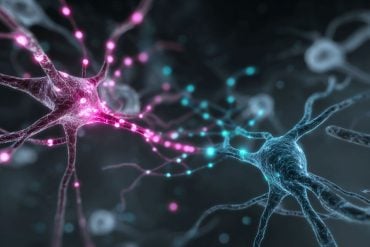Summary: A new study has uncovered a biological link between inflammation and motivational deficits in people with schizophrenia, identifying a promising treatment target for symptoms that current medications fail to address. Higher levels of the inflammatory marker C-reactive protein were associated with reduced activity in brain regions involved in reward and motivation, such as the ventral striatum and ventromedial prefrontal cortex.
These brain changes were specifically linked to negative symptoms like difficulty initiating work or social relationships, rather than to hallucinations or delusions. The findings lay the groundwork for precision medicine trials targeting inflammation in this subgroup of patients.
Key Facts:
- Inflammation-Motivation Link: High C-reactive protein levels correlate with motivational deficits.
- Brain Circuit Impacted: Inflammation disrupts reward-related activity in the ventral striatum and prefrontal cortex.
- Targeted Treatment Trial: Infliximab is being tested for patients with both high inflammation and negative symptoms.
Source: Emory University
A new study from Emory University has identified a biological connection between inflammation and deficits in motivation in individuals with schizophrenia, offering new hope for treating symptoms that have long been resistant to existing therapies.
Published in Neuropsychopharmacology, the official publication of the American College of Neuropsychopharmacology, the study found that higher levels of C-reactive protein — a blood biomarker of inflammation produced by the liver — were associated with reduced activity in brain circuits tied to reward and motivation.

These brain changes, in turn, were linked to negative symptoms of schizophrenia specific to motivational deficits, such as difficulties in finding work, relationships or school. The inflammation was not associated with other schizophrenia symptoms such as hallucinations, delusions or depression.
The findings are significant because current antipsychotic medications do not address these motivational deficits and, in some cases, may even worsen them. These symptoms are also strongly associated with poor functional outcomes in patients with schizophrenia.
Researchers focused on a key brain circuit involving the ventral striatum and the ventromedial prefrontal cortex — areas previously shown to be sensitive to inflammation in studies of depression.
“This is the first study in schizophrenia to link inflammation with both brain changes in reward circuits and specific motivational symptoms,” says David Goldsmith, MD, associate professor in the Department of Psychiatry and Behavioral Sciences at Emory University School of Medicine.
“By identifying a biological mechanism underlying these symptoms, we are closer to developing targeted treatments that could offer real relief to patients.”
The study supports a precision medicine approach by suggesting treatments targeting inflammation may only benefit a specific group of patients — those with elevated inflammatory markers and significant motivational challenges.
For example, previous studies of medications targeting inflammation in patients with schizophrenia have largely failed by not identifying which patients would benefit from these approaches.
The work helped lay the foundation for a current experimental-medicine trial at Emory testing the anti-inflammatory drug infliximab, commonly used to treat rheumatoid arthritis and inflammatory bowel disease, in patients with schizophrenia who have high inflammation and motivational deficits.
This is the first study of infliximab in this patient population and designed to test whether the impact of inflammation on this circuit and these symptoms may be causal.
“There is an urgent need to develop new strategies to treat the negative symptoms of schizophrenia, which remains one of the greatest unmet needs in the field,” says Goldsmith.
“We hope this line of research will change that. If we want to support recovery from schizophrenia, we must be able to treat these symptoms.”
Funding: The study was funded by the National Institutes of Mental Health through a K23 Career Development Award (K23MH114037) totaling $957,420 over five years, as well as KL2TR002381 and UL1TR002378. Mentors on the project included Andrew Miller, MD (primary mentor), Michael Treadway, PhD and Elaine Walker, PhD.
About this inflammation and schizophrenia research news
Author: Jennifer Johnson McEwen
Source: Emory University
Contact: Jennifer Johnson McEwen – Emory University
Image: The image is credited to Neuroscience News
Original Research: Closed access.
“Inflammation is associated with avolition and reduced resting state functional connectivity in corticostriatal reward circuitry in patients with schizophrenia” by David Goldsmith et al. Neuropsychopharmacology
Abstract
Inflammation is associated with avolition and reduced resting state functional connectivity in corticostriatal reward circuitry in patients with schizophrenia
Low-grade inflammation has been associated with negative symptoms in patients with schizophrenia. Of these symptoms, deficits in motivation and pleasure, especially in the domain of avolition, are particularly disabling.
Effects of inflammation on motivational deficits in patients with depression are associated with disruptions in corticostriatal reward circuitry involving the inferior ventral striatum (iVS) and ventromedial prefrontal cortex (vmPFC).
Accordingly, we examined the relationships among inflammation, negative symptoms, and corticostriatal reward circuitry in patients with schizophrenia.
Negative symptoms and high sensitivity C-reactive protein (hsCRP) were obtained in 57 individuals with schizophrenia. Resting state functional connectivity (rsFC) was obtained from a subset of 43 of these individuals.
Associations were tested between hsCRP and the motivation and pleasure (MAP) and expressivity (EXP) dimensions of the Brief Negative Symptom Scale (BNSS) as well as targeted rsFC between iVS and vmPFC. Covariates in all statistical models included age, sex, race, smoking, body mass index, depression, and chlorpromazine equivalents.
hsCRP was significantly associated with BNSS MAP (β = 0.34, pcorr = 0.022, specifically the domains of avolition and asociality (p < 0.05), but not BNSS EXP (β = −0.17, pcorr = 0.57) or the domains of blunted affect or alogia (both p > 0.05). hsCRP was also significantly associated with decreased rsFC from right iVS to vmPFC (β=−0.37, pcorr = 0.029), which in turn, was associated with increased avolition in individuals with higher (hsCRP >2 mg/L) but not lower inflammation (β=−14.01, p = 0.007 vs. β = 0.07, p = 0.77, respectively).
hsCRP was associated with reduced avolition and corticostriatal rsFC in patients with schizophrenia and increased inflammation, underscoring the need for further research to replicate these associations with brain connectivity changes in this subgroup of individuals with schizophrenia.







